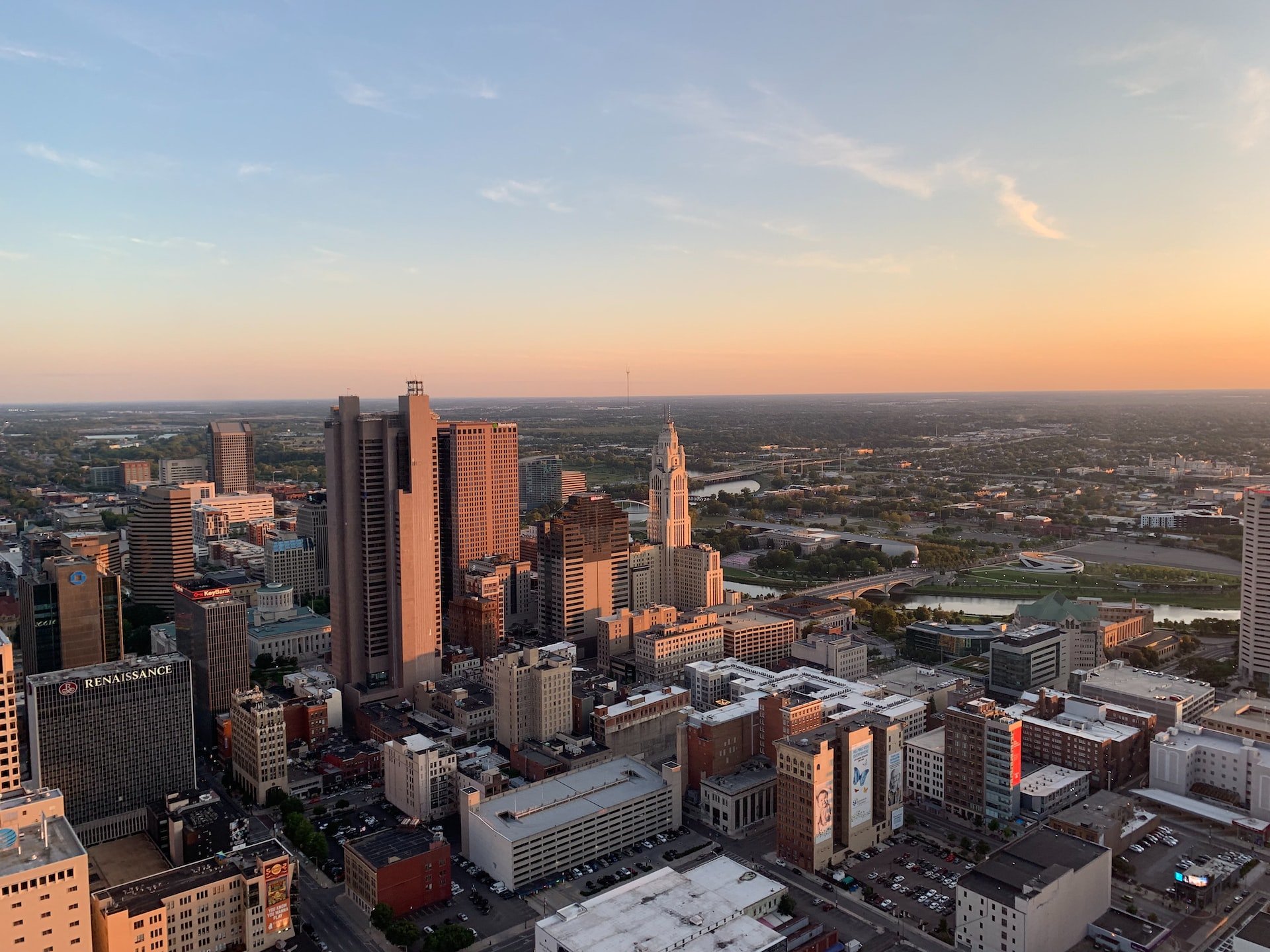Tech-Savvy Cities: Where to Invest and Why
Numerous cities across North America are making use of technological advancements to improve their local infrastructures. Cities that adopt technologies like 5G, hybrid work, broadband internet, and 3-D printing become more desirable places to live, work, and invest.
When a city implements thousands of Wi-Fi hotspots, it becomes a haven for anyone who needs an internet connection – remote workers, students, social media scrollers, and online shoppers alike. Installing smart traffic sensors citywide reduces commute times and improves road safety for city residents.
It's not always easy to predict the next hot market for ESG investing. But if you're on the search for tech-savvy real estate, consider these 13 cities across the United States and Canada.
Tucson, AZ
Home of the largest government-owned LTE network in the country.
This city in the desert is a master at identifying areas of improvement and implementing realistic plans that make lives better. Among its most exciting recent developments is Tucson’s CBRS internet network, which will scale to 5,000 homes and be leveraged for smart city initiatives. The network can even be used by companies who want to use 5G-dependent IoT.
Tucson was recognized by the 2021 Smart 50 Award for Project Aelous. With Project Aeolus, underserved families – including those with children who depend on remote learning – can gain in-home internet access.
Tucson is also planning to invest in three tech corridors with fiber internet and smart traffic tech. Local talent comes from the University of Arizona, home to both the Arizona Transportation Research Institute and one of the best optical science programs in the world.
Riverside, CA
In May 2022, Riverside City Council approved a citywide high-speed fiber network.
Providing new ideas and tech talent, the University of California–Riverside anchors this inland town that sits around an hour from LA and San Diego. The school even partnered with the city to create the ExCITE incubator, a startup accelerator for tech companies. City-led smart initiatives include installing 45 electric vehicle chargers and building a gigabit fiber network within the next five years. Riverside is also creating an Innovation Corridor with smart traffic signals, vehicle-to-grid interaction, and air quality sensors.
Riverside has some of the fastest internet in the country, clocking in at 111.8 Mbps download speeds on average.
Baltimore, MD
Home of the new Alertus Center for Intelligent Buildings.
Baltimore is another city with excellent internet (120.9 Mbps download speeds). However, that’s not all it has going for it. Baltimore not only has a high percentage of its workforce in STEM occupations, but job opportunities saw an impressive 6% growth last year. The city has implemented innovative programs like BSmart Baltimore, which will use smart technologies to transform neighborhoods.
In 2021, Alertus Technologies announced it will create 100 new jobs and move its existing workforce to a 40,000-square-foot building in Downtown Baltimore. The company's new headquarters, the Alertus Center for Intelligent Buildings, will house the industry's leading security, life safety, and smart building solutions. Leveraging adaptive reuse for a historical building, Alertus will showcase its smart building technologies, such as mass notifications, surveillance, intrusion detection, access control, and fire suppression.
Many of Baltimore’s initiatives are focused on closing the digital divide through fast internet, smart devices, and improved infrastructure and transportation. Its Smart Transit Signal Prioritization program is already using traffic light sensors to improve travel times for potential commuters.
Saskatoon, SK
Recipient of the 2021 Smart 50 Award for wastewater management program detecting pharmaceuticals and traces of the COVID-19 virus.
Toronto and Vancouver get plenty of attention, but CRE investors shouldn’t sleep on Saskatoon. Saskatchewan and its capital are catching up to the competition. The population is educated, with nearly 33% holding a bachelor’s degree or higher. Tech jobs are growing at breakneck speed, and real estate is affordable, especially compared to other major cities. What else do you need to know about Saskatoon? The city won an award in 2021 for its smart wastewater monitoring system, and it’s currently working on pilot projects for citywide 5G and LoRaWAN networks.
Tampa, FL
Implementing technology through the connected vehicle project, Tampa is using sensors to notify drivers of road hazards.
While it’s home to more than 50 IT and software businesses, Tampa has managed to stay relatively under the radar as a technology hub – until now. CRE investors can follow in the footsteps of Bill Gates and Jeffrey Vinik, who recently put $3.5 billion into Tampa’s tech-focused real estate (including up-and-coming crypto company CoinFlip, which will open an office in the new Water Street Tampa District). Tampa is also getting an IoT network that can support millions of devices, which the city plans to use for smart traffic and parking management. The Tampa-Hillsborough Expressway Authority is working on it with a Connected Vehicle Pilot Program and Autonomous Vehicle Test Bed.
Columbus, OH
Ranked the second smartest city worldwide in 2021.
Columbus made waves when it beat out 77 other cities to win the Department of Transportation’s Smart City Challenge in 2016. Columbus didn’t stop there – the city scored two Smart 50 Awards in 2021 for programs that were implemented as a result of its Smart City Challenge win. Other smart achievements include the Linden LEAP self-driving shuttle, which autonomously delivered meals and masks during the pandemic, and the city’s Connected Vehicle Environment, which improves emergency response times and decreases speeding. Today, the city is focused on providing broadband internet access to all and attracting tech talent to help propel it toward the future.
Pittsburgh, PA
Implementing a traffic-management program called Smart Spines, Pittsburgh uses CCTV cameras and sensors to improve congestion and traffic flow.
Pittsburgh’s reincarnation from its Rust Belt roots has long been held up as a model for other cities to follow. Yet, the Steel City can be an example in another way, too: a smart, tech-savvy city primed for CRE growth. STEM jobs are on the rise, and thanks to its nearby universities, there’s plenty of tech talent and incubators in Pittsburgh. Case in point? The Carnegie Mellon University Robotics Institute created the city’s Surtrac program, which uses sensors to control and reduce traffic. The city plans to expand the program after winning a $29 million grant from the Department of Transportation.
Madison, WI
Madison’s tech center is growing rapidly, expanding by 47% between 2014 and 2019.
Nearly 50% of people in Madison hold a bachelor’s degree or higher – much more than the U.S. average of 33%. With more than 44,000 students, the University of Wisconsin –Madison is one of the nation’s largest colleges – and its graduates enter a lucrative job market with prospective employers like Microsoft, Google, HP, ZenDesk, and software provider Epic Systems. Simultaneously, students have the support of the Wisconsin Alumni Research Foundation to help turn their research into commercially viable tech. The city, its residents, and CRE investors benefit from this cycle of innovation.
Kitchener, ON
Provides free public Wi-Fi, computers, and printers at community centers.
Kitchener has a lot going for it: high STEM employment, fast-hitting job growth, proximity to Toronto, and two awards for its smart city programs. The Robotic Sidewalk Inspection Program collects data on sidewalk repairs, while the Smart Green Infrastructure Monitoring System uses smart sensors and technologies to predict and manage stormwater runoff. It also has the Digital Kitchener Innovation Lab, one of the first entities in Canada that is entirely dedicated to using smart technologies to improve air quality, traffic, and use of the city’s assets.
Atlanta, GA
Apple, Google, Microsoft, and Visa have set up offices in Atlanta, as over a dozen Atlanta-based companies have grown to valuations above $1 billion in the last decade.
Atlanta is one of the most connected cities in America. It’s a transportation hub for both ground and air, with the busiest airport in the world. It’s also a life sciences and technology hub, with companies like Microsoft, Apple, and Google moving in and shaking things up. It has plenty of electric vehicle charging stations and fast internet, with a goal of deploying broadband and 5G citywide. The Atlanta Smart City Strategic Infrastructure Initiative has tons of IoT-involved goals, and they’ve already deployed 200 CityIQ streetlight sensor nodes to detect gunshots and monitor traffic, pedestrians, and parking. When it comes to tech-savvy markets, Atlanta checks all the boxes.
Huntsville, AL
Huntsville’s technology job sector grew 309% from 2016 to 2017.
Did you know that Huntsville is nicknamed “The Rocket City”? It’s home to the second-largest research park in America, an Army base called Redstone Arsenal, and NASA’s largest research center, the Marshall Space Flight Center. That explains why it has the fourth-highest concentration of STEM jobs of all the cities on our list. With a 114.2 Mbps download speed, it also has fast internet for a mid-sized city and has topped several lists of the best places to live in the country. The city is piloting several smart initiatives, including an automated driving taxi service and intelligent traffic signals on Spragins Avenue. Huntsville has talent, quality of life, and reasonable prices – what more could a CRE investor want?
Ann Arbor, MI
With $9.95M in funding, Ann Arbor is implementing more than 20 “smart intersections” to gather and transmit information in real-time to connected vehicles.
When it comes to Ann Arbor, there are three words to know from the start: University of Michigan. It’s one of the best colleges in America for science and engineering, and its innovations help advance the city. Ann Arbor is also a prime testing ground for all things vehicle related. There’s the Ann Arbor Connected Vehicle Test Environment, the A2GO Autonomous Vehicle Initiative, and the Vehicle-to-Infrastructure Project, which has deployed sensors for traffic management. Perhaps the most exciting prospect is the Michigan Connected and Automated Vehicle Corridor Project, a proposed 40-mile corridor for autonomous vehicles that will connect Ann Arbor and Detroit. For CRE investors, all roads point to Ann Arbor.
Boulder, CO
The University of Colorado Boulder is home of the Building Energy Smart Technologies (BEST) Center, a project aimed at advancing sustainable building technologies that include HVAC manufacturing, smart glazing for windows, building control, insulation, and solar energy systems.
Boulder scores near the top – or at the top – on nearly every count, making it the best tech-savvy city for CRE investors. Its population is highly educated – with plenty of students at the University of Colorado Boulder – powering just the type of innovation and fresh thinking that smart cities need. Tech giant Google has an office in Boulder, alongside Twitter, Amazon, Cisco, Qualcomm, and more. That’s not all – CRE investors can rest assured their buildings will be connected. The city has multiple internet initiatives, including the Community Broadband Connectivity Project, which is constructing a 65-mile broadband fiber network, and Connect Boulder, which aims to bring free, public Wi-Fi to all residents.
Final Thoughts on Tech-Savvy Cities
With the growth of digitally savvy smart cities, CRE investors can still strike while the iron’s hot. By investing in smart cities, you can diversify your portfolio with tech-based factors that grow over time. You can also use tech growth as a factor for determining property value.
Whether you want to find the top tech talent, ensure your buildings are connected to fast internet and the latest innovations, or simply invest in an up-and-coming tech market, there’s a city for you on our list.
Dottid is the asset optimization platform that empowers CRE teams to drive portfolio performance by leveraging powerful data and collaborative workflows. Learn how Dottid can empower your teams and unlock asset cashflow.













